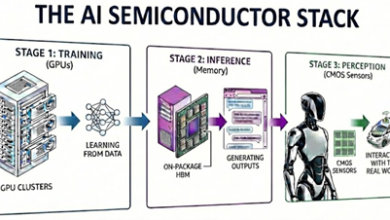
Accounting has always evolved in tandem with technology; from spreadsheets to cloud platforms, each shift has transformed how firms serve their clients and generate revenue. Cloud once felt experimental, but just within a few years, it has now become unavoidable. Agentic AI is moving even faster. Firms that delay may risk falling behind – not just in efficiency, but also in relevance.
These new systems are more than just chatbots or search tools; they are intelligent agents capable of reasoning, acting, and completing tasks from start to finish. For accounting firms, that means the opportunity to reinvent service models, scale revenue streams, and redefine what it means to be a trusted adviser.
From knowledge to action – and oversight
For decades, the profession’s value rested on specialised knowledge. Clients turned to accountants for expertise they could not access elsewhere. Large language models have disrupted that foundation. Much of what was once proprietary is now instantly available, often for free.
This does not mean the accountant is obsolete – in fact, far from it. It means the source of differentiation is shifting. Value no longer lies only in knowledge, but in action – in the ability to anticipate needs, deliver outcomes quickly, and free professionals to focus on strategic guidance. Just as importantly, differentiation now depends on trust and oversight. Clients will expect AI-powered services to operate under clear professional supervision, with safeguards for quality, consistency, and accountability.
Building repeatable, revenue-generating services
One of the most promising aspects of AI agents is their capacity to deliver consistent, repeatable services that firms can monetise. Traditionally, scaling revenue has required scaling headcount. Each new service line meant more people, more training, and more complexity.
Agents change the equation. They can manage recurrent activities like compliance checks, data reconciliation, and reporting packages if they are designed and managed correctly. Because they operate within a firm’s own systems and workflows, outputs can remain reliable, auditable, and in context. Once established, these services can be extended to a larger client base without incurring the marginal cost of additional personnel. The end result is a portfolio of scalable offerings that broaden a firm’s reach while maintaining profitability.
Surfacing overlooked opportunities
Cross-selling has long been a challenge in professional services. Busy teams focus on delivering the work in front of them, often missing signals that point to other client needs. AI agents excel at pattern recognition across large datasets.
For example, an agent reviewing a client’s management accounts might flag recurring late payments that suggest a need for credit control services. Or, it could detect high staff turnover costs, pointing towards payroll and HR advisory support. These insights only become meaningful when agents are connected to live client data and context, ensuring signals aren’t missed or misread. By continuously scanning for patterns, agents bring cross-sell opportunities to the surface, ready for human professionals to validate and discuss with clients.
Serving the long tail profitably
A persistent challenge for accounting firms is sustainably serving smaller clients. The long tail of start-ups, freelancers, and micro-businesses often receives minimal attention because the economics of traditional service delivery do not stack up.
Agentic AI makes it viable to change that. By automating routine tasks, managing workflows, and providing first-line responses, agents reduce the cost to serve. They allow firms to offer higher-quality services to small clients without eroding profitability. And critically, this doesn’t mean lowering standards. Proper oversight ensures automation extends quality and compliance, rather than diluting them.
In effect, agents create a two-tiered service model: cost-effective help for the masses and high-value advising for the select few. This broadens the target market while reaffirming the firm’s role as a partner throughout the client journey.
Reimagining client collaboration
Beyond internal efficiency, agentic AI is also reshaping how firms and clients work together. Shared digital workspaces, where clients can ask questions, upload documents, and receive instant contextual replies, will soon become part of everyday advisory.
This doesn’t replace human relationships – it strengthens them. Clients get faster, clearer answers. Firms stay in the loop, supervising outputs and stepping in at moments that require professional judgement. The result is a more immediate, transparent, and proactive form of collaboration.
Empowering professionals to focus on impact
Perhaps the most significant benefit of agentic AI is the way it frees up human expertise. Accountants did not enter the profession to chase documents or reconcile spreadsheets. They did so to help people make better financial decisions.
When agents take on the routine work, professionals can redirect their energy towards analysis, strategy, and relationship building. The role shifts from being a reactive problem-solver to a proactive orchestrator of insight and outcomes – setting the standards, guiding the agents, and focusing on the client needs that matter most.
A sector in motion
Recent developments suggest the shift is already underway. A survey by EY found that nearly half of technology companies are already adopting or fully deploying artificial intelligence agents. At Google Cloud Summit London this summer, senior leaders described agents as moving from pilot projects to core business infrastructure, with early adopters seeing major efficiency gains.
The lesson is clear: firms that hesitate risk being left behind. Just as cloud accounting moved from optional to essential in less than a decade, agentic AI is on the same trajectory – only at greater speed.
Looking ahead
The question is no longer whether AI will change accounting, but how firms will respond to it. Agentic AI offers a chance to reimagine service delivery, scale revenue without parallel growth in headcount, and empower professionals to focus on the work that clients truly value.
The firms that thrive will be those who embrace agentic AI not as a replacement for expertise, but as a partner that makes expertise more valuable, more scalable, and more trusted.



